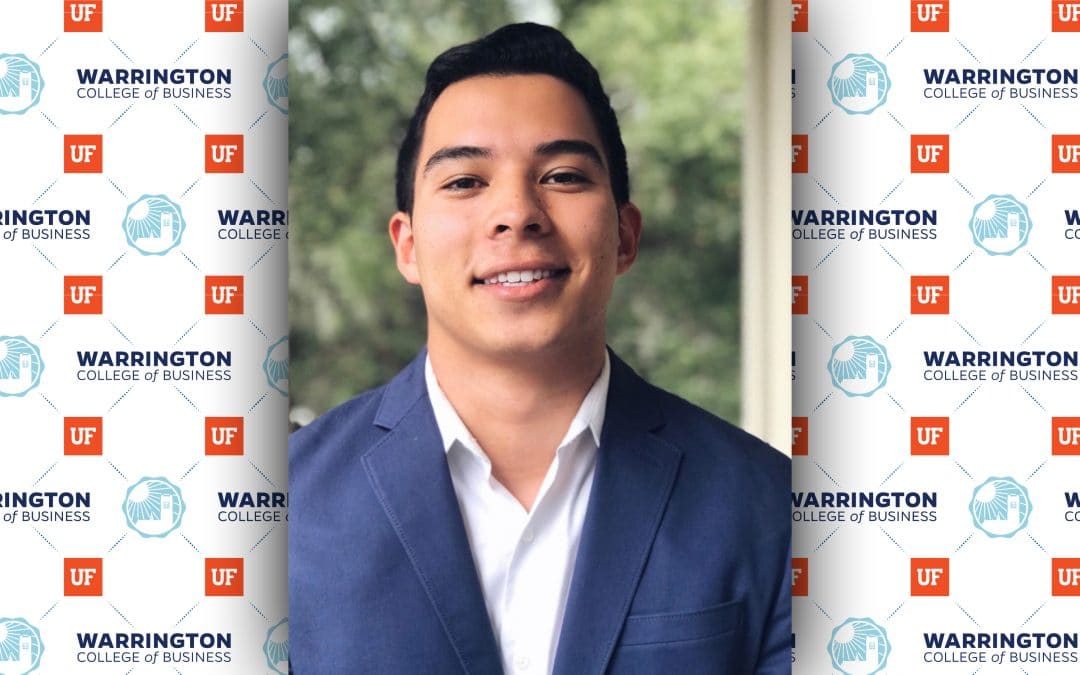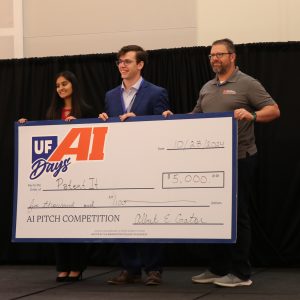Business Analytics Experiential Learning course boosts MS-ISOM student’s skills and experience
Roberto Yulee led a group project to help Accenture Federal Services create a tool to detect bias in AI systems.
Like many students across the University of Florida and nation, my summer internship was canceled due to the COVID-19 pandemic. Although it was tough to swallow, I knew there were still opportunities for me to grow my experiences. For me, the new opportunity to learn was in Dr. Hoover’s Summer Business Analytics Experiential Learning Course. When I received an email from Dr. Carrillo, who was also involved in the class, about qualifying for the class I figured it’d be a good opportunity to stay busy.
In the Summer Business Analytics Experiential Learning Course, I worked on a Responsible Artificial Intelligence (AI) project directly with Accenture Federal Services along with four other group members. I served as the project manager and subject matter expert. The goal of the project was to make AI more responsible against bias.
For anyone who follows along with AI news, you’ll know that bias is a problem in AI and many times it can be implicit. This is defined as the attitudes or stereotypes that affect our understanding, actions and decisions in an unconscious manner. Depending on what data is being used to program algorithms, the unconscious bias of those programming the algorithm, and on a multitude of other factors, there can be biased results from an AI.
Our job was to create a tool that can help detect this bias early on to help Accenture Federal Services. We ended up trying out a combination of packages whether it was in R (a programming software) or Python in order to pinpoint their strengths and weaknesses. From this, we created a matrix we presented to the Accenture Federal Services team.
While this may seem like a simple process, I encountered challenges along the way. Going into the class, I wasn’t yet confident in my technical background. I was only a semester into the Master of Science in Information Systems and Operations Management (MS-ISOM) program and felt I hadn’t had a chance yet to really develop my technical skills. I was unsure about serving as the project manager at first because I wasn’t sure how I was going to be a resource to my team when it came to programming.
Feeling a little lost, I gave Dr. Hoover a call. I was very open with him about my concerns, held multiple one-on-one meetings with him and, in the end, he gave me the reassurance to move forward with the positions assigned to me. I took it day by day, learned from my group members and, ultimately, we were able to successfully create a package matrix for the Accenture team.
While I was stressed about leading this project, this experience was beneficial to me from an academic standpoint because it gave me a chance to be exposed to real world issues. We weren’t just learning theories, but we were working with one of the largest tech consultancies in the world in order to help them solve their issues. That was cool, and I felt the pressure every time we met.




